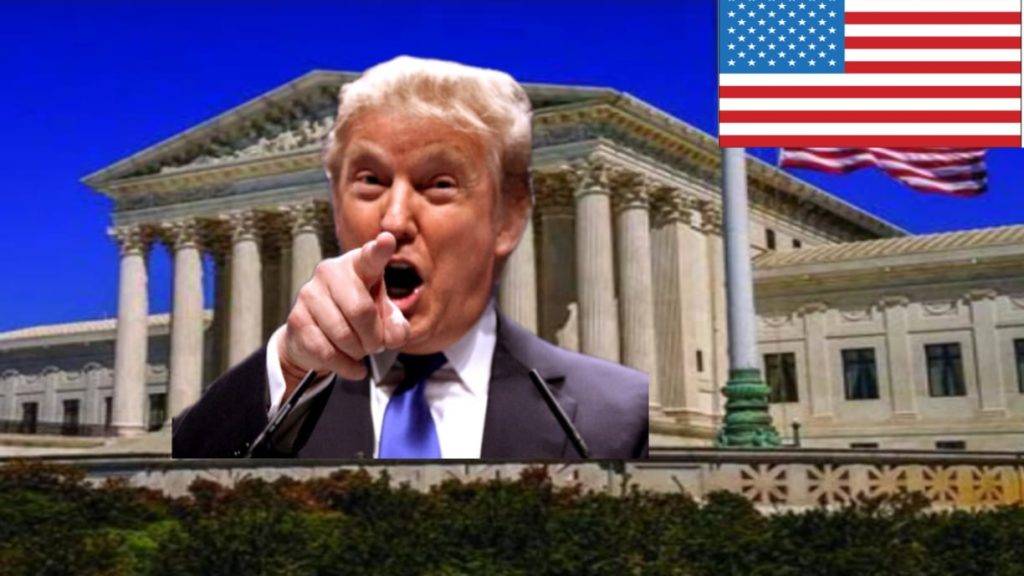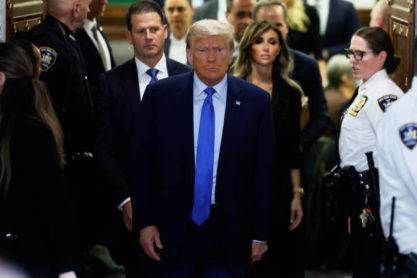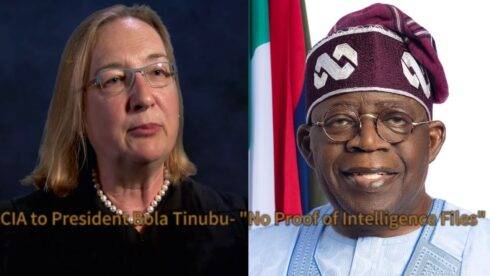Trump’s Public Repudiation and the Social Media Fallout
former President Donald Trump faced a series of setbacks in the E. Jean Carroll defamation case. After a scolding from Judge Lewis Kaplan, Trump took to his Truth Social platform to launch a tirade filled with complaints, deranged lies, and a victimhood mentality. He not only attacked the judge but also attempted to discredit the entire New York legal system as “rigged” against him. Trump’s attempt to distance himself from the first defamation trial’s proceedings, claiming it was “ridiculous and demeaning,” only to lose, further fueled the controversy.
Unraveling Trump’s Claims and Accusations
In his Truth Social posts, Trump intensified his assault by asserting that Judge Kaplan should have recused himself due to “obvious bias and hatred.” This claim, however, appears to be a diversion tactic, as the judge’s scrutiny resulted from Trump’s repeated misbehavior and attacks during the trial. Trump’s defense strategy continued with accusations against E. Jean Carroll, whom a jury had already determined to be a victim of sexual abuse by Trump. The former President insisted he had done nothing wrong, framing himself as the victim of false accusations, despite the jury’s verdict.
Twisted Narratives and False Claims
As Trump’s tirade continued, he further delved into discrediting Carroll by alleging she had “deleted massive amounts of evidence.” His attempt to portray the trials as a success for him and dismiss them outright revealed a disconnect from reality. The contradiction between Trump’s self-praise and the legal reality underscored the gravity of his predicament. The public spectacle of these posts not only demonstrated his desperation but also raised questions about the veracity of his statements and the credibility of his defense.

Implications for Justice and the Future of the Case
Despite Trump’s insistence on an “amazing Day of Trial,” legal experts predict an unfavorable outcome for him. The severity of the accusations, coupled with the jury’s prior determination, leaves little room for doubt. The attempts to discredit the judge and victim, combined with baseless claims of evidence deletion, may further damage Trump’s credibility in the courtroom. As the E. Jean Carroll defamation case unfolds, it becomes increasingly apparent that justice will prevail, and Trump’s historic courtroom meltdown will be remembered as a pivotal moment in his post-presidential legal battles. .
Trump’s Confrontation with the U.S. Justice System
Former President Donald relentless attacks on the U.S. justice system have created a contentious atmosphere, leading to concerns about the system’s integrity. As the frontrunner for the Republican nomination in the upcoming 2024 U.S. election, Trump has consistently denied any wrongdoing, dismissing the legal cases against him as politically motivated. However, these confrontations have escalated to a point where they prompted New York state Justice Arthur Engoron to issue a gag order on October 3, prohibiting Trump from making disparaging remarks about court staff after the former president targeted the judge’s law clerk on social media.
This clash between Trump and the justice system has put the courts in a challenging position. Legal experts argue that allowing these attacks to continue poses a significant risk of undermining the entire judicial process. On the other hand, attempts to constrain Trump could potentially play into his narrative that the justice system is being “weaponized” against him. Georgetown University law professor Michael Frisch, an expert in legal ethics, emphasized the unprecedented nature of this situation, stating, “We’ve never had a criminal defendant with such a megaphone.”

Trump’s Personal Attacks on Judges Fuel Controversy
Trump’s broadsides against specific judges further intensify the controversy surrounding his interactions with the justice system. Justice Arthur Engoron, who ruled that Trump and his family business committed fraud, became a target of Trump’s attacks, with the former president labeling him as “deranged.” Additionally, Trump expressed doubts about the impartiality of other judges, such as questioning Judge Chutkan’s ability to provide him with a fair trial and branding her as “highly partisan.”
These personal attacks on judges not only raise ethical concerns but also contribute to a growing sense of turmoil within the judicial system. Trump’s dismissive language not only challenges the credibility of specific rulings but also creates a broader narrative that can undermine public trust in the justice system as a whole. As the 2024 election approaches, the intertwining of legal proceedings and political rhetoric adds a layer of complexity to an already contentious situation, leaving legal experts and observers alike grappling with the implications for the U.S. justice system’s independence and effectiveness.
Table of Contents
Discover more from OGM News NG
Subscribe to get the latest posts sent to your email.














